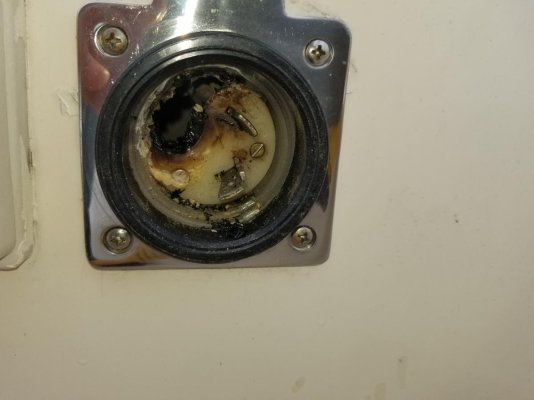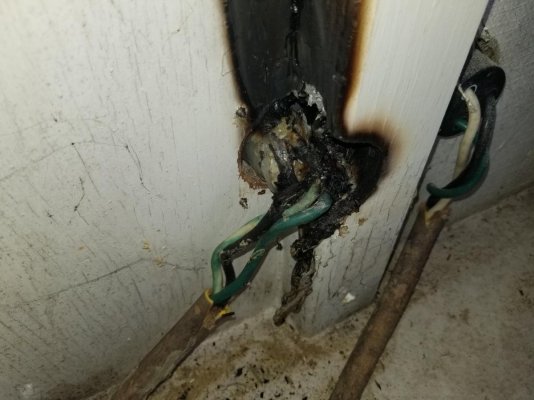oscar
Guru
- Joined
- Oct 22, 2015
- Messages
- 1,098
- Location
- United States
- Vessel Name
- Lady Kay V
- Vessel Make
- 1978 Hatteras 53MY
Helped a buddy move his boat today for haul out. He couldn't unplug one of the 30A shore power cords from the boat end, it was stuck. Several tools and a half hour later I had it all apart. It had gotten hot and plastic had melted and fused things together.
The wiring showed significant corrosion. So, that creates resistance which in turn causes heat, as well a voltage drop and then the amps go up to meet the wattage demand and keep the two A/C's (in his case) running.
He got close to a fire there. And, this is where a LOT if not most of the boat fires start.
So check those plugs and make sure they are not overheating!
The wiring showed significant corrosion. So, that creates resistance which in turn causes heat, as well a voltage drop and then the amps go up to meet the wattage demand and keep the two A/C's (in his case) running.
He got close to a fire there. And, this is where a LOT if not most of the boat fires start.
So check those plugs and make sure they are not overheating!






